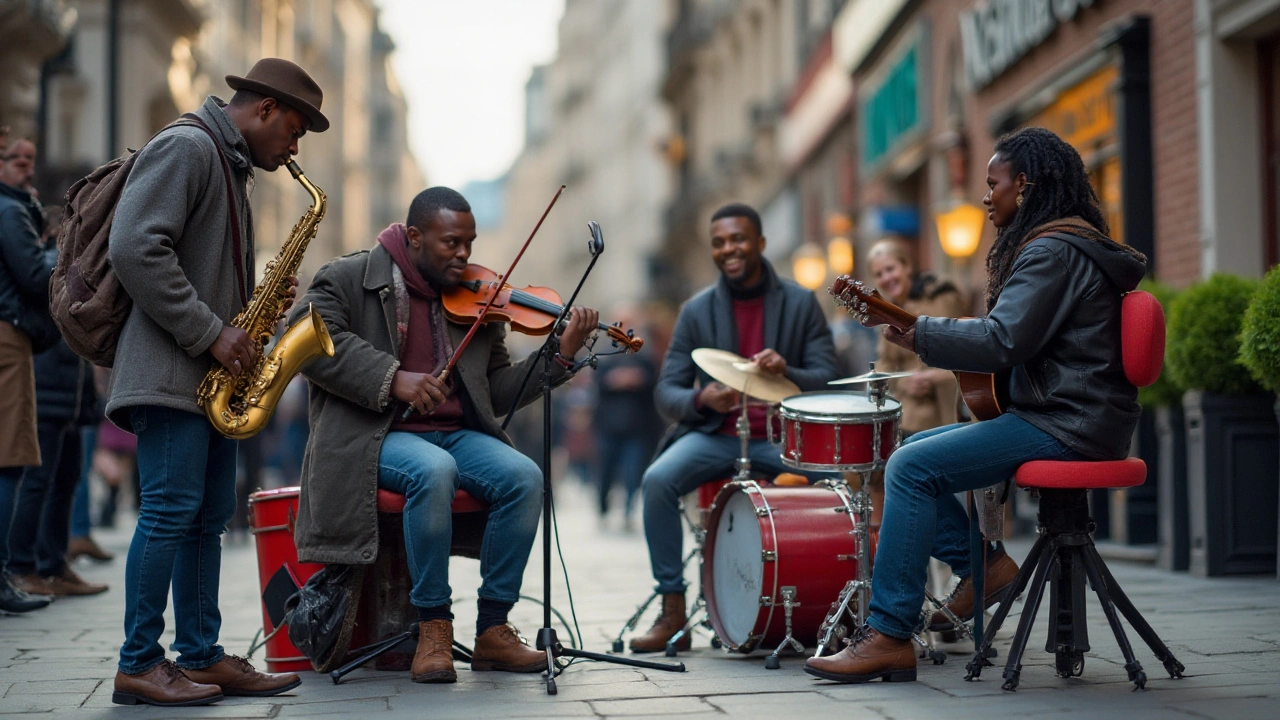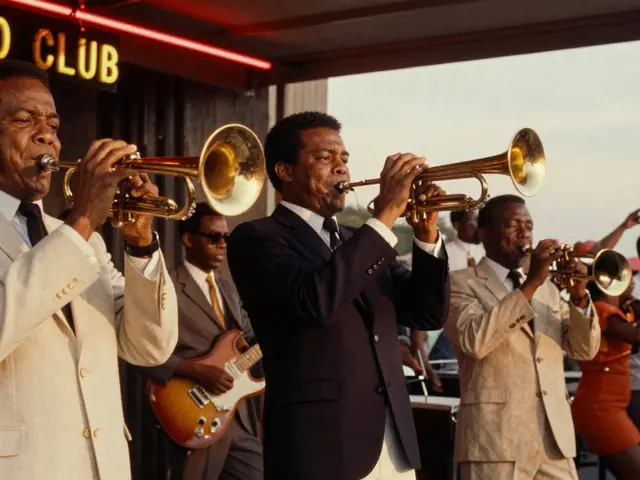Music speaks where words fail, and through its myriad genres, it tells stories that resonate within the core of our being. Imagine a world woven of melodies, each thread representing a unique genre that adds its own splash of color. Whether it’s the evocative pulse of rock or the soothing tones of classical strings, music genres create a tapestry that unites us, even when language divides.
Delving into the world of music genres isn’t just about rhythm and sound; it’s about experiencing the histories and dreams of those who paved the way. With origins steeped in cultural traditions and social movements, each genre brings its own flair, inviting listeners to explore emotions like never before. But where do you start if you’re new to this vast world? Here, the journey begins with understanding the roots and distinctive attributes of these soulful sounds.
- The Origins of Music Genres
- Characteristics and Styles
- Cultural Impact and Influence
- Tips for Exploring New Genres
The Origins of Music Genres
The world of music is a diverse spectrum, evolving over centuries and resonating within the hearts of listeners. The story of music genres traces back to the age of classical antiquity, where music was considered a powerful and divine medium. In ancient Greece, music played a vital role in society, used in theaters, religious ceremonies, and as a form of personal expression. The Greeks even believed in the ethos of music, the idea that it could influence one's character and conduct. Similarly, in ancient India, the Vedic hymns laid the foundation for what would become traditional Indian music, creating a spiritual link between the sounds and the divine.
As time progressed, different regions developed their own distinct musical styles, contributing to the rich tapestry of what we now recognize as music genres. The Middle Ages witnessed the evolution of Gregorian chants in Europe, transcending religious practices to influence secular music. It was during the Renaissance that a notable shift occurred; music became more expressive and complex, embracing harmonies and diverse vocal techniques. This era planted the seeds for classical music, which flourished during the Baroque and Romantic periods with influential composers such as Johann Sebastian Bach and Ludwig van Beethoven pushing the boundaries of symphonic sound.
The melting pot of cultural exchanges during the 20th century sparked the birth of numerous modern genres. Jazz, emerging from the African American communities in New Orleans, exemplified a blend of African beats, blues, and European musical traditions. It paved the way for other significant movements like the soul music, which at its heart carried the stories of hardship and triumph. Rock music, with its electric energy and rebellious spirit, drew on blues and country roots, spreading like wildfire across the globe. As Bob Marley once said, ".
Music is the vehicle for this universal expression of love,"capturing the essence of how diverse genres serve as conduits for human emotion.In today's digital age, musical expression is boundless. The internet revolutionized music distribution, allowing genres to intermingle like never before, leading to fusion genres such as reggaeton and K-pop dominating the charts worldwide. Initiatives on streaming platforms provide invaluable insights. For instance, data collection during 2021 revealed that hip-hop was the most streamed genre across major platforms. This adaptability of music mirrors our society's growth, illustrating how genres are not stagnant categories but evolving entities rooted in rich histories and cross-cultural interactions.
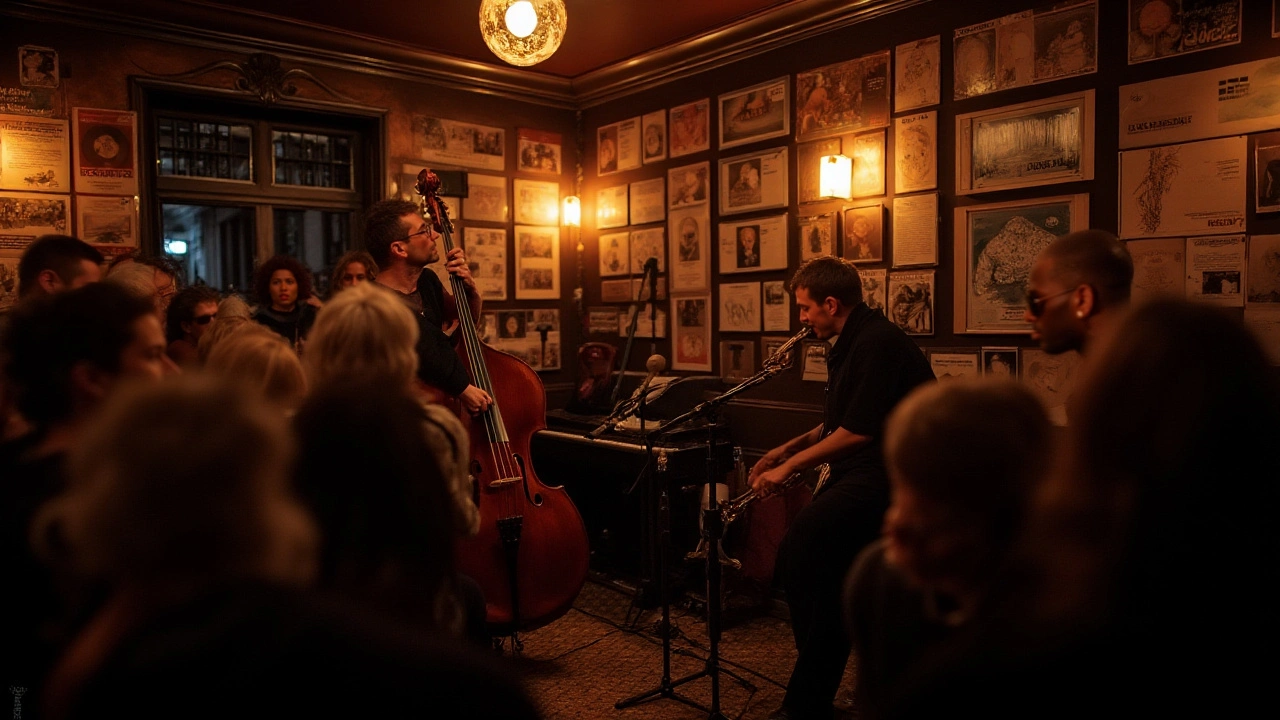
Characteristics and Styles
Dive into the vast landscape of music genres and you'll find a world rich with diversity and tradition. Each genre possesses its own set of characteristics, painting a distinct picture through its instruments, rhythms, and melodies. Take jazz, for example, a genre born in the early 20th century that thrives on improvisation and complex chord structures. Its ever-changing nature reflects the spontaneous emotions of the performers and their connection with the audience. Key instruments like the saxophone and trumpet lend jazz its distinctive sound, while the varying tempos invite everything from a slow, thoughtful sway to an up-tempo swing dance.
The irresistible beats of pop music, on the other hand, tell a different story that is all about catchy melodies and memorable hooks. Rooted in simplicity yet amplified by modern production techniques, pop music effortlessly captures the essence of mainstream appeal. One could argue that its universal language has been further enhanced by the use of digital tools that allow producers to create polished tunes across various platforms, reaching audiences at every corner of the world.
"Without music, life would be a mistake." - Friedrich NietzscheLet's not overlook the profound influence of classical music, whose timeless nature is marked by intricate compositions and orchestral grandeur. This genre, which dates back centuries, has not only left an indelible mark on the world of music but has also shaped the way we understand harmony and balance. The symphonies of Beethoven and the operas of Mozart continue to whisk listeners away through their emotive storytelling and technical mastery.
Then there's rock music, a powerhouse genre known for its strong beats and electrifying guitar riffs. Often regarded as a tool for social change, rock music gave voice to a generation seeking expression and freedom. By embracing elements from blues, country, and even classical music, rock created an amalgamation that birthed countless sub-genres, each echoing a unique identity and cultural significance.
Genres like these are also known for their significant cultural impact. For instance, reggae, with its roots in Jamaican culture, has long promoted messages of peace and social justice through its rhythmic, offbeat style. The genre uses heavy bass lines and syncopation to draw listeners into a space of contemplation and movement, often featuring lyrics that speak truths about life, love, and revolution. It's clear that the varying characteristics and styles across music genres enable them to connect with audiences in profound and personal ways.
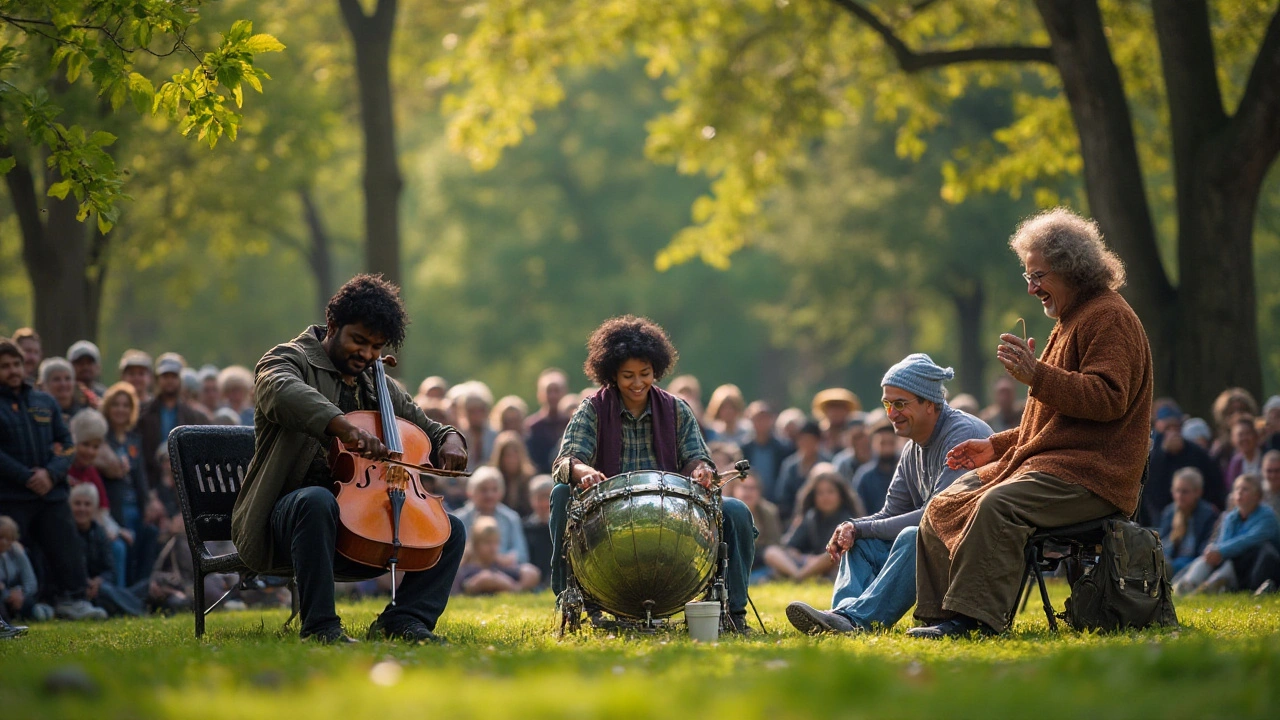
Cultural Impact and Influence
Music genres impact our lives far beyond the notes and melodies we hear. They play an enormous role in shaping societal norms, providing a mirror for social transformation, and offering a voice to people in times of change. Think about how music genres like jazz emerged as a powerful expression of the African American community, providing solace and unity when words seemed inadequate. These rhythms, filled with truth and resilience, crafted a new cultural identity that was embraced worldwide.
As music has evolved, genres like rock and roll have become emblematic of rebellion and the spirit of youth. They flourished amid political upheaval and technological advancements, challenging the status quo with electric riffs and powerful lyrics. By encouraging free expression, they paved the way for social movements, becoming anthems for generations. It's intriguing to consider how artists, by simply strumming their guitars or singing from the heart, could spark revolutions and inspire lasting change.
"Music can change the world because it can change people," said Bono, the lead singer of U2, capturing the essence of music's transformative power.The cultural impact of music genres isn't confined to social movements; it seeps into everyday life, shaping fashion, language, and even political climates. Consider hip-hop, a genre deeply rooted in the realities of urban life, which not only brought forth distinct sounds but also unique clothing styles, slang, and attitudes. This musical expression provided a platform for marginalized voices, turning the spotlight on issues like racism and poverty while promoting empowerment and solidarity. Its influence transcended borders, bridging gaps between diverse cultures and uniting listeners beyond the rhythm.
Moreover, scientific studies have shown the profound impact of music on the brain. Different genres stimulate various parts of the mind, influencing our emotions and cognitive functions. The ability of soul music or classical symphonies to calm and inspire creativity or how upbeat pop and dance tracks boost energy levels is well documented. A classical piece in minor key or a minimalist jazz solo can tease out emotions we didn't know we had, demonstrating how deeply intertwined music is with our psychological processes. Below, I've summarized some fascinating studies on this subject:
Genre Effect on Brain Classical Enhances focus and memory Jazz Improves mood and critical thinking Pop Boosts energy and motivation In the end, music genres craft a universal tapestry, a dialogue that spans cultures and eras. They provide a shared space where humanity can reflect on its collective journey. It's these cultural impacts and influences that make the exploration of music not merely a pastime but a profound experience of connection—and understanding—not unlike the greatest works of art or literature.
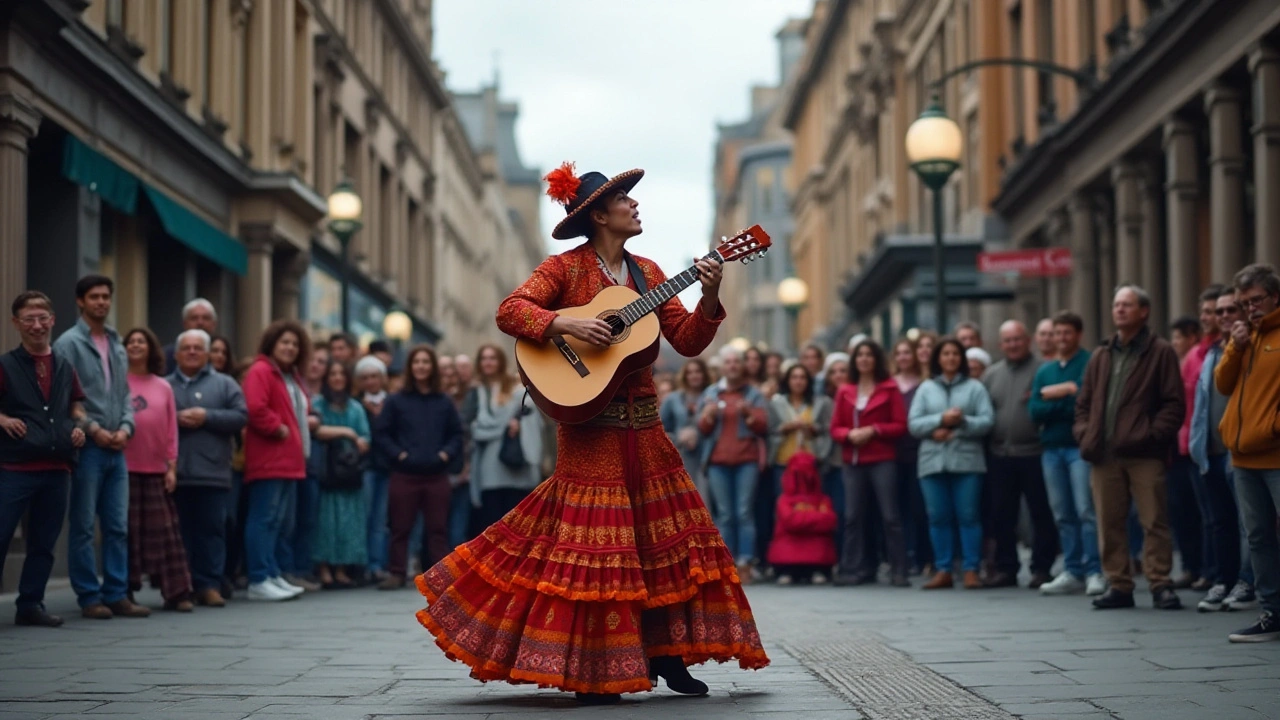
Tips for Exploring New Genres
Diving into new music genres can feel a bit like exploring an uncharted island, where every note and rhythm offers a new marvel. The first step to embracing new musical landscapes is to keep an open mind. Allow your auditory senses to absorb without judgment, embracing both the familiar and the exotic. One practical method is to create a playlist with a diverse range of tracks from different genres and listen to it during various activities like commuting or exercising. This immersive experience can spark unexpected connections and fondness for styles you never thought you'd enjoy. Pay attention to how different musical expressions affect your mood and mindset throughout the day.
Digging deeper can also involve learning about the roots and history of each genre you encounter. Knowledge brings appreciation, and understanding the cultural context from which the music emerged can enhance your listening experience. For example, jazz isn't just a sound; it's a story of resilience and innovation born in the face of adversity. Read about influential artists who have shaped these musical genres and listen to their seminal works to grasp the genre’s essence. According to famous composer Leonard Bernstein,
"Music can name the unnameable and communicate the unknowable."These stories are as much a part of the music as the notes themselves, adding layers of depth to each chord and lyric.Thoughtful exploration requires knowing where to look for new sounds. Streaming platforms often compile genre-specific charts or playlists, perfect starting points for beginners. Utilize algorithm-based recommendations, but don’t shy away from seeking out lesser-known artists who might be hidden gems. Many local radio stations or online communities also offer curated playlists that focus on niche genres or emerging artists. Engage with musical communities on forums and social media where enthusiasts share their latest discoveries and opinions. This interaction not only broadens your taste but also connects you to people with shared interests.
One rewarding way to navigate the diverse realm of music genres is through live performances and festivals. Here, the music comes alive in new and unexpected ways, and you can directly witness the artist's interpretation and energy. Whether it's a small jazz club or a massive rock festival, the live atmosphere adds an invaluable dimension to your experience. If attending in person is not possible, many recorded live performances are available online, capturing the essence of these events. Remember to take notes of the genres and artists that intrigue you during these experiences, creating a personalized exploration guide for future listening.

